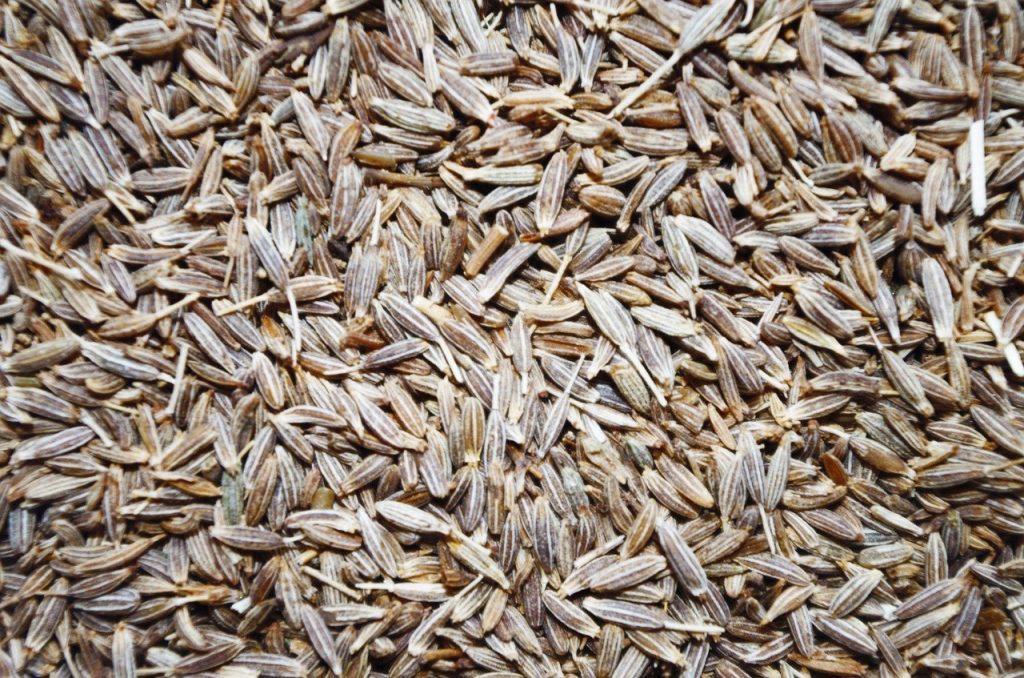You can easily get different brands of cumin powder in the grocery store and is available in several top food brands. Stock up and adding it to your daily curries and tadkas will assure health benefits and a beautiful aroma. Is coriander the same as cumin in characteristics? Well, no. Let’s have a look!
What is Coriander?
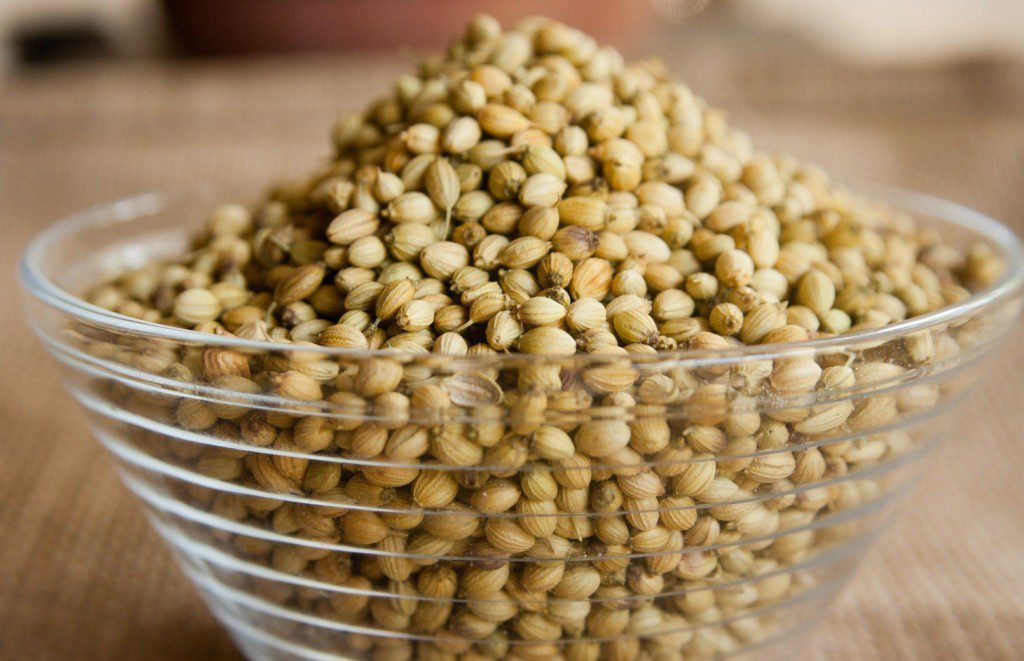
Coriander is a popular herb available in plants. It is also very famous as a medicinal herb due to its extraordinary properties. It helps in reducing blood sugar. The best part about this plant is you can eat everything from its leaves, stalks to seeds. Dry coriander seeds and fresh coriander leaves and stalks, are both very useful and a part of many Indian delicacies.
Another popular name for Coriander is cilantro or Chinese parsley. It is quite famous among people worldwide. Coriander belongs to the family of celery. ‘dhania’ is the Hindi abbreviation for coriander seeds. People use coriander seeds as a whole and in powdered form. If you are fond of tasty cooking, having ground coriander is a must in your spice rack.
Getting an readymade of ground coriander seeds (dhania powder) ensures convenience as you won’t have to grind them at home.
How Are Coriander And Cumin Different From Each Other?
Both the spices have their origin through different plants. As a result, they both possess a unique aroma and flavor. For this, knowing each spice individually is a vital skill. The common aspect between coriander and cumin is that they are popular in South Asian countries and are widely used in their recipes.
1. Taste And Flavor
Are Coriander Seeds And Cumin Similar In Taste? The answer is no. Both, cumin and coriander possess distinct individualistic tastes. As they have earthy flavors, heating them while cooking accentuates their aroma even more. They both are amongst some of the most prominent spices in your daily food.
Cumin is nutty in its taste and gives a smoky whiff when heated up. Any meal in which you wish to add a smoky touch, cumin is your dependable ingredient. Especially all gravies and curries must use this to enhance the flavor. Even in most Mexican recipes, it is a recommended to add a pinch of roasted cumin powder to enhance the taste.
In comparison to cumin, coriander has a much lighter and brighter flavor. You can relate it to citrus and floral type flavors. If you opt for ground coriander, its scent is getting further intensified and enhances the food.
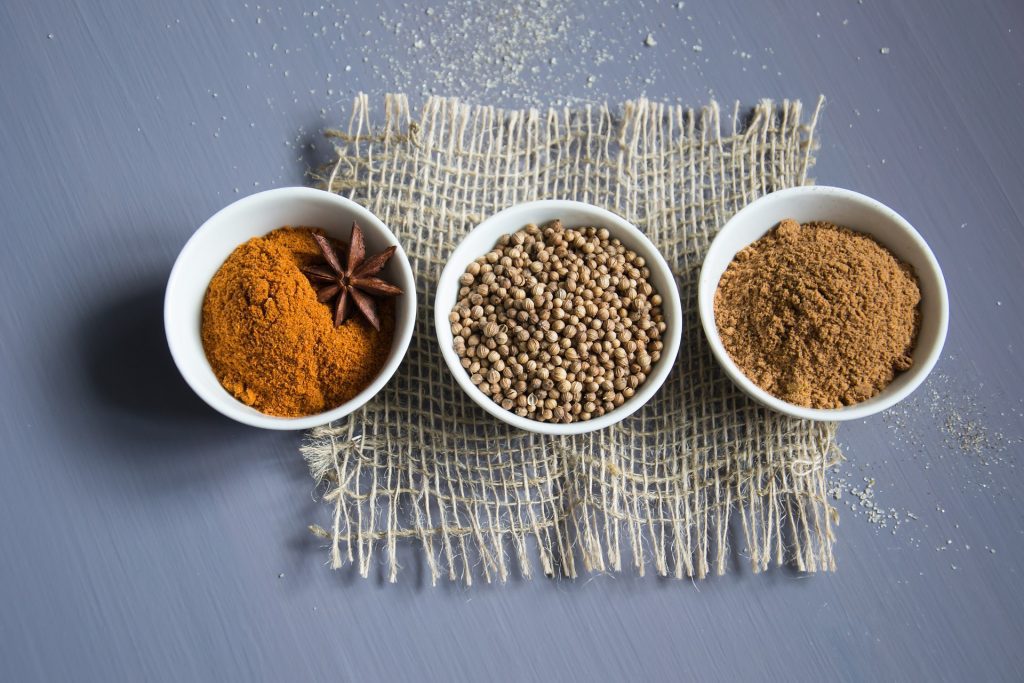
2. Difference In Appearance
Are coriander and cumin similar to look at? No. Appearance is another distinctive trait between the cumin and coriander seeds. They have an entirely different appearance as well. Cumin seeds look more like the small and poky rice grain. They appear as medium or light brownish in color and also have some light color stripes running on it.
On the other hand, coriander seeds are round in shape. They appear to be slightly pointed at one side and on the other side, there is a stem or its plant. The colour of coriander seeds is also light brown but it is more on the yellowish side.
3. Difference In Nutritional Aspects Of Coriander And Cumin
Is coriander the same as cumin? They are not the same as they have distinct attributes altogether. Both these wonderful kitchen ingredients are full of health benefits. They are amongst the most nutritional spices available around. Here are some specifications about their health benefits:
- Calories – Cumin offers higher calories in comparison to coriander.
- Vitamins and minerals – Coriander is a very good source of several vitamins and minerals. On the other hand, the iron content in cumin is decent. Cumin seeds offer a good daily dose of magnesium, fat, and vitamins.
- Fiber – Coriander in all forms is a great source of fiber.
Let’s understand their health benefits as well.
Health Benefits of Cumin seeds
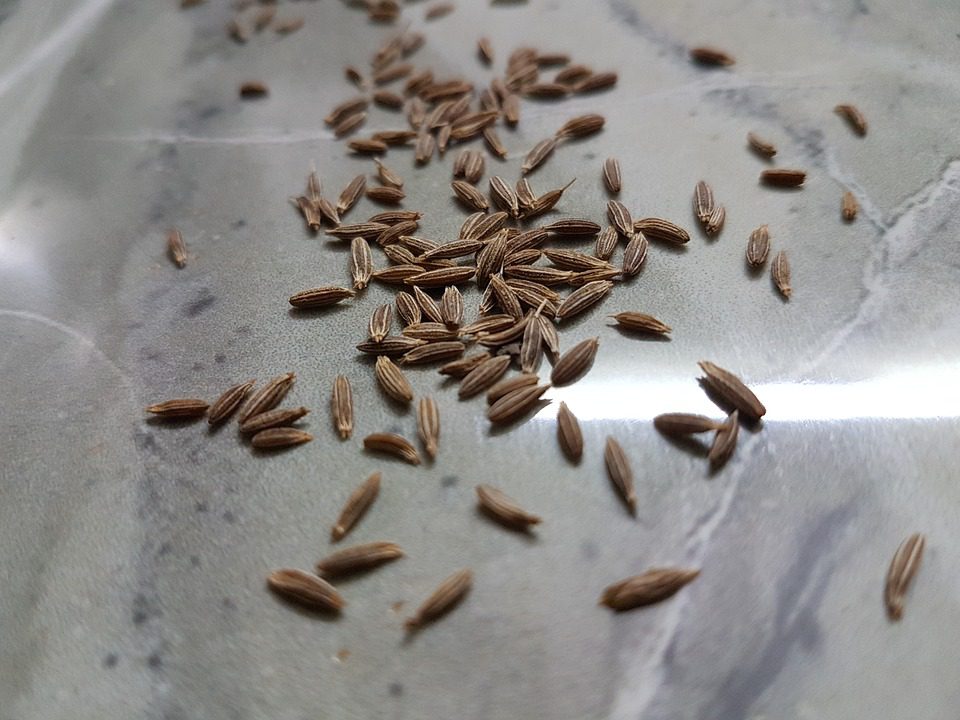
Jeera or cumin is a a great addition to your meal and can help enhance the health quotient an taste of you recipes with just a small amount. This is a traditional spice that has been used from a long time in different forms. Cumin water (jeera paani) is a great way to start your day to promote digestive health. Here are 5 different ways with which you can introduce jeera in your diet.
The digestive enzymes present in this warming spice helps to flush out toxins from the body. It is also a very powerful source of good fats and nutrients which are crucial for better functioning of the digestive system. The iron content present in cumin is another reason why you should add it to your diet.
Cumin also has several anti-bacterial characteristics. It helps in enhancing your health and imparts good immunity levels to fight deadly diseases. Just like many other medicinal plants and herbs, it has some large amounts of minerals, vitamins, and other antioxidant properties. Besides, it also has a large role to play in the improvement of your overall health.
Health Benefits Of Coriander Seeds
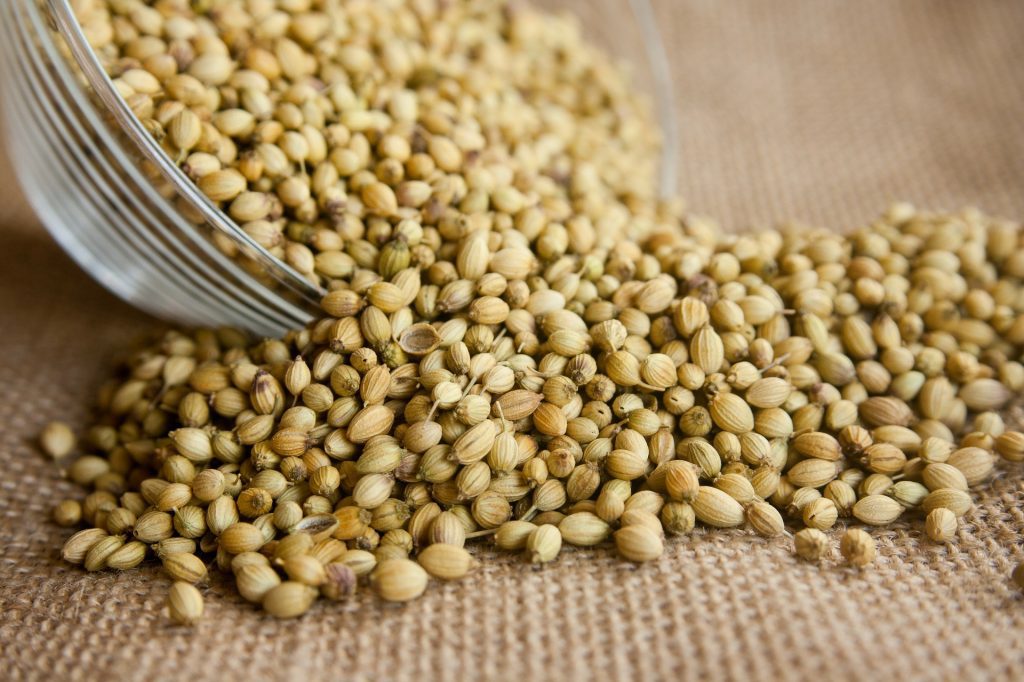
Just like cumin, coriander seeds are full of nutrients and antioxidants also. Coriander seeds are beneficial for heart health, can help to increase the body’s metabolism and other digestive health advantages.
Coriander seeds can also help support a faster and better digestion process. In certain instances where people are suffering through IBS or bacterial infections like UTIs, the intake of coriander in various forms has been proven to be very effective. Do you know that coriander also has anti-inflammatory properties?
Famous Recipes Made Using Coriander And Cumin
Several Indian recipes contain both coriander and cumin proportionately. But their combined addition can give a peculiar taste. Jeera is widely used in North Indian dal tadkas and everyday vegetable and meat preparations like jeera aloo, jeera pulao, chicken and even beverages like shikanji and jaljeera. Powdered roasted jeera is also a tasty addition to your daily curd, chaas or a tangy tomato salsa.
Coriander seeds are used in masalas, garam masalas, sambar masalas and more. Coriander seeds are a must have in a masala dani to prepare everyday curries and gravies. Fresh coriander leaves are the prefect garnishing and can be used to make tasty chutneys.
Frequently Asked Questions
Here we have answered few very interesting FAQs about cumin seeds.
1. Are Cilantro and Coriander the same?
Cilantro and coriander belong to a similar plant family Apiaceae. Cilantro is a widely used term in various parts of America. The fresh green leaves that you get from the coriander plant is known as Cilantro.
On the other hand, Europeans and Asians mostly refer to these leaves as coriander.
However, in either case, the basic herb stays the same. Many use coriander as a primary garnishing ingredient for their recipes. While others prefer using its ground seeds to add taste in daily meals.
2. What can be the appropriate alternatives to cumin and coriander?
Coriander and cumin possess unique flavors and it can be hard to find a substitute that is an exact match. But the following come close to the originals –
1) Cumin can be substituted with caraway seeds. Add it as per your taste, as caraway seeds are richer in taste in comparison to cumin.
2) Coriander seeds can be substituted with a combination of cumin, fennel and caraway seeds to achieve a similar aroma.
Conclusion
Above differentiation can be very helpful in understanding ‘Is coriander the same as cumin‘? They are two very strong spices with variably different tastes and flavors. It is entirely your choice to pick anyone or add them both for a perfect outcome.
Disclaimer – This content including advice provides generic information only. It is in no way a substitute for qualified medical opinion. Always consult a specialist or your own doctor for more information before making any dietary changes.


